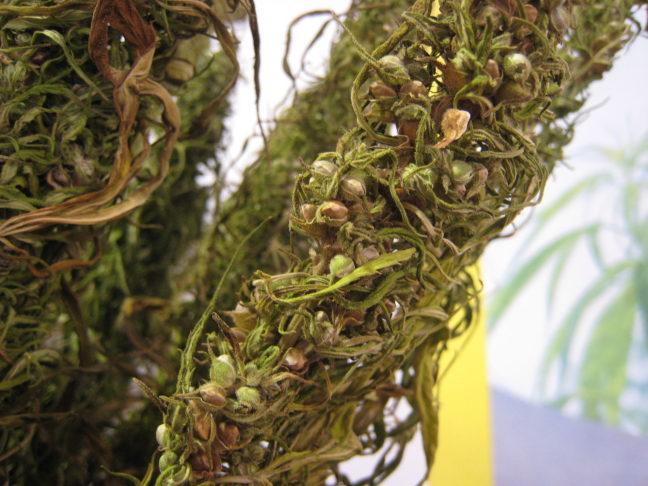A group of Wisconsin legislators are working to pass a bill that would legalize the production of industrial hemp, a form of cannabis used in paper, food, textiles, medicine and construction materials.
State Sen. Patrick Testin, R-Stevens Point, and Rep. Jesse Kremer, R-Kewaskum, the authors of the bipartisan bill, said the reintroduction of industrial hemp to Wisconsin “will do wonders“ for the state’s economy and farmers.
The form of cannabis can’t produce a high.
On the federal level, The Farm Bill, signed into law in 2014, permitted individual states to decide if they would allow industrial hemp production, Kremer said. Thirty-one states have legalized industrial hemp since then, including Illinois, Indiana, Michigan and Minnesota.
Testin said approximately $500 million of industrial hemp is imported into the U.S. annually.
“I just think it’s common sense that we remove some of the government hurdles to allow our hard-working farmers the opportunity to grow it right here in the state of Wisconsin as opposed to importing it from other countries,” Testin said.
Industrial hemp takes 90 days to grow into a crop that can be used to make fibers like paper or rope, whereas it takes trees decades to do the same, Kremer said.
The bill would require industrial hemp growers to obtain a license through the Wisconsin Department of Agriculture, Trade and Consumer Protection, Kremer said. Growers would also have to pass a criminal background test, displaying no previous arrests for narcotic use or trafficking.
The bill also states the legal hemp couldn’t exceed 0.3 percent THC concentration. DATCP would seize and destroy industrial hemp exceeding 1 percent, Kremer said.
“That way we are not running the risk of people trying to sneak in plants like psychoactive marijuana or people applying for an industrial hemp permit to grow marijuana,” Testin said.
In joint proposal, Wisconsin Democrats announce legislation to legalize medical marijuana
DATCP would also require all growers provide exact GPS coordinates to the location of their hemp production sites, Testin said.
Kremer and Testin said the conversations regarding legalization of marijuana and industrial hemp are entirely separate.
“That’s how I’ve been pitching it to my colleagues who have traditionally taken more of a hard stance against the cannabis plant family all together,” Testin said.
Assembly passes bill to legalize possession of medical marijuana extract
According to Madison ordinance, unless licensed, registered or otherwise permitted to distribute, dispense, conduct research or administer marijuana, a person may casually possess no more than 28 grams of marijuana or cannabis in a private place.
Testin said he is confident this bill will get to the floor in both the state Senate and Assembly.
“It has the potential to be huge,” Testin said.













